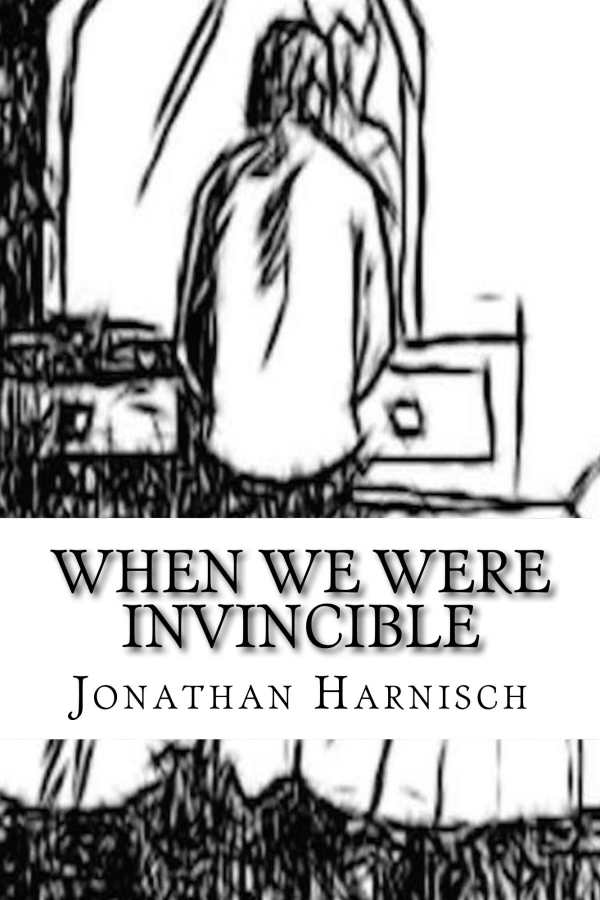
When We Were Invincible
A boarding school student with Tourette’s syndrome looks for the meaning of life in this offbeat novella.
In When We Were Invincible, a short novel by Jonathan Harnisch, a young man wrestles with depression and Tourette’s syndrome, which together drive him to the point of suicide. A series of dreams and chance meetings, along with the possibility of romance and faith in God, pull him back from the edge. The book successfully introduces philosophical themes and gives a sympathetic picture of mental illness.
Georgie Gust is a seventeen-year-old junior at St. Michael’s Academy, a New York City boarding school. Other students mistake his Tourette’s—cursing, stuttering, “grimaces and neck thrusts”—for substance abuse. He gets little support from his policeman father and alcoholic mother, but his best friend, Shawn Fitzie, and his girlfriend, Claudia Nesbitt, encourage him. Even so, depression brings him close to suicide. A little girl pulling at his arm in the street is his temporary salvation, and dream encounters plus theological debates with Claudia point toward a purpose to life.
Harnisch has previously written screenplays as well as novels, and his strengths lie in imagining scenes and voices. The novel is episodic, going from one climactic or confrontational moment to another. It is weaker, though, at filling in background and providing transitions. For instance, Claudia’s arrival in Georgie’s life merits just two lines: “She was a beauty and quite mature. Met her off campus at this local dive in Midtown Manhattan the day before Fitzie’s campus tour.” Such a shorthand description means she is destined to be a two-dimensional character, functioning mostly as a mouthpiece for Catholicism.
On the other hand, there are some quite creative set pieces, as when Georgie gets into a long conversation with a homeless man about dead pets or hallucinates a philosophical discussion with Jean-Paul Sartre. However, there are many awkward, unlikely lines of dialogue, such as “I didn’t know you had so much energy inside that noodle of yours.” Georgie’s letters to his parents, especially, are formal and wordy, which contrasts uneasily with his slang-filled narration (“Some lame fruit loop spilled some major poo on my brothel stompers that night at my intense blowout”).
All the same, the author— who himself struggles with Tourette’s—gives a convincing account of mental illness from the inside. Georgie thinks of his depression as a “horn-headed monkey” or “imp” that returns suddenly and without warning. Nevertheless, the hopeful postscript suggests that the love and purpose he finds with Claudia set him up for a successful future. This is recommended to fans of Mark Haddon’s The Curious Incident of the Dog in the Night-Time.
Reviewed by
Rebecca Foster
Disclosure: This article is not an endorsement, but a review. The publisher of this book provided free copies of the book and paid a small fee to have their book reviewed by a professional reviewer. Foreword Reviews and Clarion Reviews make no guarantee that the publisher will receive a positive review. Foreword Magazine, Inc. is disclosing this in accordance with the Federal Trade Commission’s 16 CFR, Part 255.
